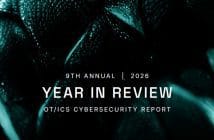
 Cybercrime has increased exponentially over the years. According to Statista, cybercrime contributed to the loss of over 1.4 trillion Dollars in the USA during 2017. That is an increase of over 90% of lost revenue within 15 years. According to Cyber Security Ventures, this loss is expected to increase to $6 Trillion by 2021. That is more than triple to what it is today! Most of these crimes were committed cross international borders, which creates a challenge within the legal system. The current legal system has a number of short comings which is why cybercrime is increasing so rapidly. These short comings would need to change substantially in order to allow the legal and cyber professional to do their job. To understand a little about what the legal system is facing, and what needs to change, we first need to look at some of the constraints placed within our current legal system.
Cybercrime has increased exponentially over the years. According to Statista, cybercrime contributed to the loss of over 1.4 trillion Dollars in the USA during 2017. That is an increase of over 90% of lost revenue within 15 years. According to Cyber Security Ventures, this loss is expected to increase to $6 Trillion by 2021. That is more than triple to what it is today! Most of these crimes were committed cross international borders, which creates a challenge within the legal system. The current legal system has a number of short comings which is why cybercrime is increasing so rapidly. These short comings would need to change substantially in order to allow the legal and cyber professional to do their job. To understand a little about what the legal system is facing, and what needs to change, we first need to look at some of the constraints placed within our current legal system.
A Birds Eye View of our current Legal System
Before we look at future changes within our legal system, we first need to understand our current system. There are 3 sections of the legal system called Separation of Powers. These 3 sections include legislature (parliament that creates an Act), executive (such police, councils, etc) and judiciary (court system that resolve disputes). This prevents the concentration of power to one individual or institution. Common Law, according to the Concise Australian Legal Dictionary, is ‘the unwritten law derived from the traditional law of England as developed by judicial precedents, interpretation, expansion and modification.’ This system follows legal hierarchy which is mostly governed by jurisdiction. It is one of the main reasons why one case from the Federal Court may take precedent over another case in a Magistrates Court. International Law, on the other hand, has two facets. The first is public international law (between States) and private international law (law between private people and companies). Both private and public law comes with complexity, but typically international law, from a domestic point of view, is seen as a secondary source of law. Cybercrime generally falls under international law, which is why it’s is tougher to convict someone for a crime…Click here to read full article.





